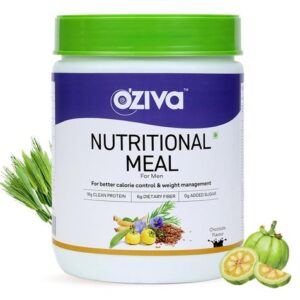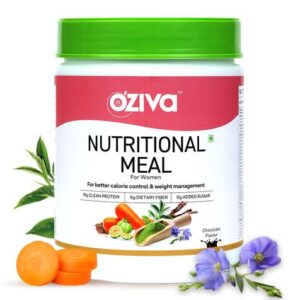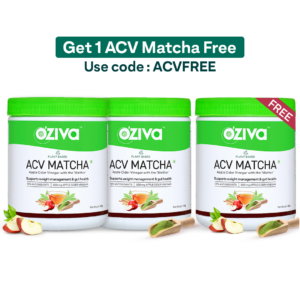Embarking on a weight loss journey can be a challenging yet transformative experience. With an overwhelming amount of information available, it’s essential to rely on science-backed strategies for effective and sustainable results. In this comprehensive guide, we will delve into a weight loss regime supported by nutrition science, offering you insights and practical tips to help you achieve your goals while adhering to a vegetarian and dairy-free lifestyle.
Understanding the Science of Weight Loss:
Before diving into specific strategies, it’s crucial to understand the basic science behind weight loss. At its core, weight loss is about creating a caloric deficit—burning more calories than you consume. However, the quality of those calories, hormonal balance, and metabolic factors also play significant roles.
1. Caloric Deficit:
- To lose weight, you need to consume fewer calories than your body expends.
- One pound of body weight is approximately equivalent to 3,500 calories. Thus, a caloric deficit of 500 calories per day can result in a weekly weight loss of around one pound.
2. Hormonal Balance:
- Insulin, cortisol, and leptin are hormones that influence weight regulation.
- Balanced nutrition, adequate sleep, and stress management contribute to hormonal harmony, supporting weight loss efforts.
3. Metabolic Factors:
- Basal metabolic rate (BMR) refers to the calories your body needs at rest. Muscle mass, age, and genetics influence BMR.
- Incorporating strength training helps maintain or increase muscle mass, supporting a higher BMR.
Building a Science-Backed Weight Loss Regime:
Now that we’ve laid the foundation, let’s explore a comprehensive weight loss regime guided by nutrition science while being vegetarian and dairy-free.
1. Set Realistic Goals:
- Begin with achievable and sustainable goals.
- Aim for a gradual weight loss of 1-2 pounds per week, promoting long-term success.
2. Personalized Nutrition Plan:
- Consult with a registered dietitian or nutritionist to create a personalized plan based on your age, gender, weight, activity level, and health status.
- Emphasize whole plant-based foods, including legumes, whole grains, fruits, vegetables, nuts, and seeds.
3. Balanced Macronutrients:
- Balance macronutrients—plant-based protein sources, carbohydrates, and healthy fats.
- Plant-based protein-rich foods support muscle preservation and satiety, aiding in weight loss.
4. Mindful Eating:
- Practice mindful eating to develop a healthy relationship with plant-based foods.
- Pay attention to hunger and fullness cues, avoiding emotional or distracted eating.
5. Hydration:
- Stay adequately hydrated with water or herbal teas, as thirst can sometimes be mistaken for hunger.
- Water is a calorie-free beverage that supports metabolism and overall health.
6. Meal Timing:
- Distribute plant-based meals throughout the day to maintain energy levels and prevent excessive hunger.
- Consider smaller, balanced meals every 3-4 hours.
7. Fiber-Rich Foods:
- Include fiber-rich plant-based foods, such as whole grains, legumes, fruits, and vegetables.
- Fiber promotes satiety and aids in digestive health.
8. Healthy Fats:
- Choose sources of healthy plant-based fats, such as avocados, nuts, seeds, and olive oil.
- Fats are essential for nutrient absorption and hormone production.
9. Limit Added Sugars:
- Reduce the intake of added sugars, as they contribute excess calories without significant nutritional value.
- Opt for natural sweetness from fruits when satisfying a sweet craving.
10. Regular Physical Activity: – Combine a balanced plant-based diet with regular physical activity for optimal weight loss. – Include both aerobic exercises and strength training using your body weight or resistance bands.
The Role of Specific Nutrients in Weight Management:
Certain nutrients play a pivotal role in supporting weight loss and overall health, even in a vegetarian and dairy-free context. Let’s explore their significance:
1. Protein:
- Plant-based protein sources like legumes, tofu, tempeh, and edamame are crucial for muscle preservation and satiety.
- Include a variety of plant-based protein in your meals.
- You can try OZiva Protein & Herbs for Women, a protein powder for women that contains 23g whey protein, Ayurvedic herbs like Shatavari & Tulsi, and vitamins and minerals. It has helped many women reduce their body fat percentage and manage their weight.
2. Fiber:
- High-fiber plant-based foods contribute to satiety and regulate blood sugar levels.
- Choose whole grains, fruits, vegetables, and legumes for a fiber-rich diet.
3. Omega-3 Fatty Acids:
- Sources like flaxseeds, chia seeds, hemp seeds, and walnuts provide essential omega-3 fatty acids.
- These fats offer anti-inflammatory benefits, supporting metabolic health.
4. Calcium and Vitamin D:
- Plant-based sources of calcium include fortified plant milks, tofu, kale, and broccoli.
- Adequate vitamin D can be obtained through sunlight exposure or supplementation.
5. Caffeine:
- Plant-based sources of caffeine, like green tea or black coffee, can boost metabolism and enhance fat burning.
- Consume in moderation, avoiding excessive caffeine intake.
6. Green Tea Extract:
- Green tea contains catechins, which may enhance metabolism and fat burning.
- Incorporate green tea as part of your plant-based beverage choices.
Plant-Based Meal Ideas for a Science-Backed Nutrition Regime:
Let’s put the theory into practice with some delicious and nutritious plant-based meal ideas:
1. Breakfast: Avocado and Chickpea Smash:
- Mashed avocado and chickpeas on whole-grain toast, topped with cherry tomatoes and a sprinkle of nutritional yeast.
- This breakfast provides healthy fats, plant-based protein, and fiber for a satisfying start to the day.
2. Lunch: Lentil and Quinoa Salad:
- Cooked quinoa mixed with lentils, cherry tomatoes, cucumber, red onion, and a lemon-tahini dressing.
- Packed with plant-based protein, fiber, and essential nutrients.
3. Dinner: Roasted Vegetable Stir-Fry with Tofu:
- Stir-fried tofu with a variety of colorful vegetables like bell peppers, broccoli, and carrots.
- Served over brown rice or quinoa, creating a balanced and flavorful dinner.
4. Snacks: Nut and Seed Trail Mix:
- A mix of almonds, walnuts, pumpkin seeds, and dried fruit.
- This snack provides a combination of healthy fats, protein, and energy-boosting carbohydrates.
Practical Tips for Sustainable Weight Loss:
1. Track Your Progress:
- Keep a food diary to track your plant-based meals, snacks, and water intake.
- Regularly assess your progress and make adjustments as needed.
2. Stay Consistent:
- Consistency is key to long-term success.
- Establish healthy plant-based habits and incorporate them into your daily routine.
3. Manage Stress:
- Chronic stress can impact weight loss efforts.
- Practice stress-reducing activities such as meditation, deep breathing, or yoga.
4. Prioritize Sleep:
- Inadequate sleep can disrupt hormonal balance and lead to weight gain.
- Aim for 7-9 hours of quality sleep each night.
5. Seek Professional Guidance:
- Consult with a registered dietitian or nutritionist, especially if you’re following a vegetarian and dairy-free lifestyle.
- They can provide tailored recommendations based on your specific needs and goals.
Conclusion:
In conclusion, a science-backed weight loss regime for those following a vegetarian and dairy-free lifestyle involves a holistic approach. By setting realistic goals, adopting personalized plant-based nutrition plans, and incorporating specific nutrients into your diet, you can embark on a journey towards sustainable weight loss.
Remember, the key is not just losing weight but doing so in a manner that promotes overall health and well-being. The plant-based meal ideas and practical tips provided here are tools to guide you, but the journey is unique for each individual. Celebrate small victories, stay committed to your goals, and enjoy the transformative process of adopting a science-backed approach to weight loss within the context of a vegetarian and dairy-free lifestyle.
Our expert team of Nutritionists suggest you try the OZiva 45 Day Fat Loss Program, consisting of our protein powder for women along with a customised diet plan and unlimited free consultations with our nutritionists.
Last modified: January 30, 2024









